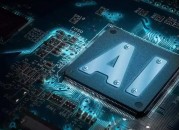AI Transforming Education: A Visionary Exploration
Introduction
As the digital era unfolds, the intersection of artificial intelligence (AI) and education emerges as a transformative force. This article embarks on a visionary journey to explore the profound implications of AI on education, guided by the seminal paper "Exploring the Implications of AI on Education: A Systematic Review and Future Research Directions."
Unleashing Pedagogical Potential
AI is revolutionizing traditional pedagogical methods by providing personalized learning experiences tailored to individual student needs. Through adaptive algorithms, educational platforms powered by AI analyze vast datasets to understand student learning patterns and preferences, thereby optimizing content delivery and engagement.
Redefining Educator Roles
With the integration of AI tools, educators transcend conventional roles to become facilitators of learning journeys. AI-driven technologies assist educators in curriculum design, assessment automation, and real-time feedback provision. Consequently, teachers devote more time to mentorship, fostering critical thinking skills, and nurturing creativity.
Fostering Inclusive Education
AI serves as a catalyst for inclusive education, bridging gaps in accessibility and accommodating diverse learning styles. Through speech recognition, natural language processing, and assistive technologies, AI empowers students with disabilities to participate fully in educational activities, fostering an inclusive learning environment.
Challenges and Ethical Considerations
Amidst the promises of AI in education, challenges and ethical considerations loom large. Issues such as data privacy, algorithmic bias, and digital divide demand careful scrutiny and proactive mitigation strategies. Furthermore, the ethical use of AI in educational settings necessitates transparent policies and ongoing dialogue among stakeholders.
Future Directions
Looking ahead, the landscape of AI in education brims with possibilities. Future research directions encompass the exploration of AI-driven virtual reality simulations, gamified learning environments, and collaborative robotics in education. Interdisciplinary collaborations and longitudinal studies will illuminate the evolving role of AI in shaping the future of education.
Conclusion
In conclusion, the integration of AI heralds a paradigm shift in education, empowering learners, educators, and policymakers alike. By embracing innovation while upholding ethical principles, society can harness the full potential of AI to create a more inclusive, equitable, and enriching educational landscape.
This imAGInative exploration seeks to expand horizons, inspire dialogue, and catalyze action towards a future where AI and education converge to unlock boundless opportunities for learning and growth.
评论列表
暂无评论,快抢沙发吧~
文章目录
支付宝
微信











欢迎 你 发表评论: